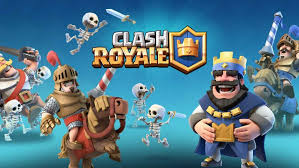
Games have been an integral part of human culture for centuries, evolving from simple pastimes to complex, immersive experiences that captivate millions around the globe. From ancient board games to cutting-edge virtual reality simulations, the world of descargarclashroyalegratis.net has undergone a remarkable transformation, shaping and reflecting the cultural, technological, and social landscapes of different eras. This article delves into the diverse realm of games, exploring their history, evolution, and impact on society.
The Historical Tapestry of Games:
The history of games is a rich tapestry woven through the fabric of human civilization. Ancient civilizations, from the Egyptians to the Greeks, had their own versions of board games that served as both entertainment and strategic exercises. Chess, originating in India around the 6th century, spread across the world and became a timeless classic that challenges players’ intellect and foresight.
As societies progressed, so did the variety and complexity of games. The 19th century saw the rise of parlor games, providing families and friends with amusement and bonding opportunities. Card games, dominos, and dice games became staples in households worldwide, fostering social interaction and friendly competition.
The Birth of Digital Games:
The advent of computers in the mid-20th century laid the foundation for a new era in gaming. The first video games, like “Pong” and “Space Invaders,” emerged in the 1970s, paving the way for the explosive growth of the gaming industry. Arcade games, consoles, and personal computers became platforms for gamers to explore fantastical worlds and engage in virtual adventures.